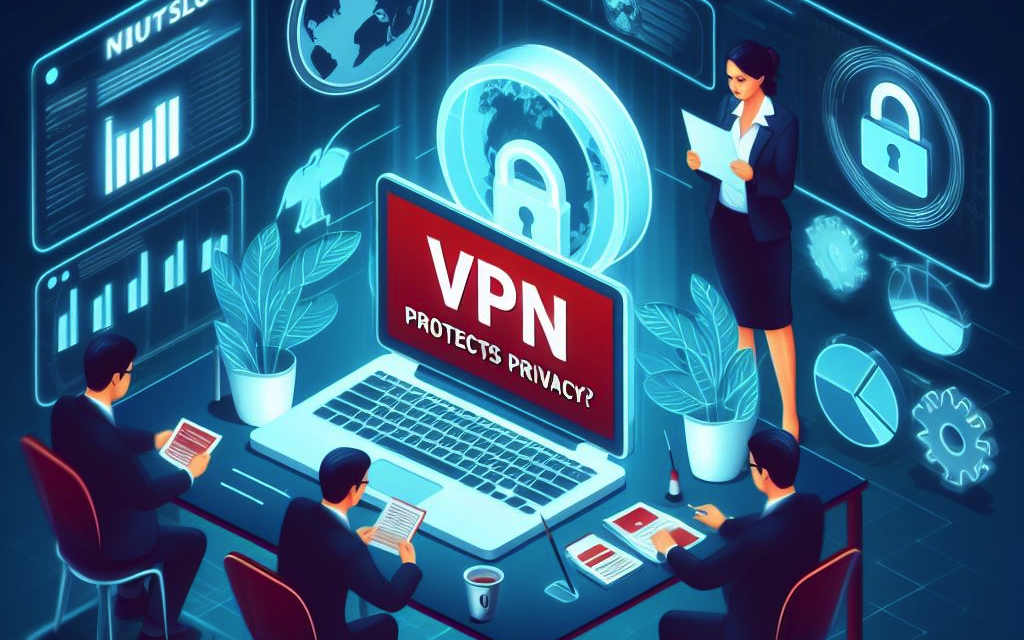
As the digital realm expands and evolves, the stakes of protecting our online privacy have never been higher. Enter Virtual Private Networks (VPNs), the silent guardians of our digital identities. Far from being mere tools, VPNs have emerged as indispensable allies in our ongoing struggle to reclaim control over our personal data. With their ability to cloak our online activities and shield us from prying eyes, VPNs represent a beacon of hope in an increasingly surveillance-heavy world. Join us as we delve into the transformative power of VPNs and their role in empowering users in the fight for online privacy.
Anonymity and Security
At the heart of VPNs lies the promise of anonymity and security. By encrypting data traffic between the user's device and the VPN server, these networks create a secure tunnel through which information travels. This encryption makes it virtually impossible for third parties, be it hackers or government surveillance agencies, to intercept or decipher the data, thus safeguarding user privacy and sensitive information.
Circumventing Geo-Restrictions
One of the most celebrated features of VPNs is their ability to bypass geo-restrictions. Whether it's accessing region-locked content on streaming platforms or circumventing censorship imposed by authoritarian regimes, VPNs provide users with the means to navigate the digital borders erected around the internet. Fast VPN services like Bitdefender further enhance this capability by offering high-speed connections, ensuring seamless streaming and browsing experiences even when accessing content from distant servers.
Enhanced Data Privacy
In an era where online privacy breaches and data harvesting have become commonplace, VPNs offer a refuge for those seeking to reclaim control over their digital footprint. By masking IP addresses and obscuring online activities, VPNs empower users to browse the internet without leaving behind a trail of personally identifiable information. This not only protects individuals from targeted advertisements and invasive tracking but also mitigates the risk of identity theft and cyberattacks.
Securing Public Wi-Fi Connections
Public Wi-Fi networks, while convenient, are often breeding grounds for cyber threats. From rogue hotspots to packet sniffing attacks, the risks associated with connecting to unsecured Wi-Fi are manifold. VPNs act as a shield against such vulnerabilities by encrypting data transmitted over these networks, thereby fortifying the security of sensitive information such as login credentials, financial details, and personal communications.
Safeguarding Business Confidentiality
Beyond individual users, VPNs play a crucial role in ensuring the confidentiality and integrity of corporate communications. With remote work becoming the norm, businesses rely on VPNs to establish secure connections for remote employees accessing company resources. This not only protects sensitive data from interception but also maintains the integrity of internal communications, safeguarding against corporate espionage and data breaches.
Enhanced Security for Remote Work
With the rise of remote work, VPNs have become indispensable for ensuring the security of sensitive corporate data. By establishing secure connections between remote employees and corporate networks, VPNs protect against unauthorized access and data breaches, regardless of the employees' location or the network they are using.
Protection Against ISP Tracking and Throttling
Internet Service Providers (ISPs) often track users' online activities and may throttle bandwidth for certain types of traffic, such as streaming or torrenting. VPNs prevent ISPs from monitoring users' activities and selectively throttling their connection speeds by encrypting all internet traffic, thereby preserving net neutrality and ensuring a consistent browsing experience.
Customization and Flexibility
VPNs offer users the flexibility to customize their privacy and security settings according to their specific needs and preferences. Whether it's choosing encryption protocols, selecting server locations, or configuring kill switches and split tunneling, VPN users have the power to tailor their online experience to maximize both privacy and performance.
Conclusion
VPNs have revolutionized internet privacy by providing users with essential tools to protect their online activities, safeguard sensitive information, and bypass restrictions and surveillance. As digital threats continue to evolve, VPNs remain indispensable for individuals, businesses, and organizations seeking to maintain their privacy and security in an increasingly interconnected world.
Share this post
Leave a comment
All comments are moderated. Spammy and bot submitted comments are deleted. Please submit the comments that are helpful to others, and we'll approve your comments. A comment that includes outbound link will only be approved if the content is relevant to the topic, and has some value to our readers.

Comments (0)
No comment